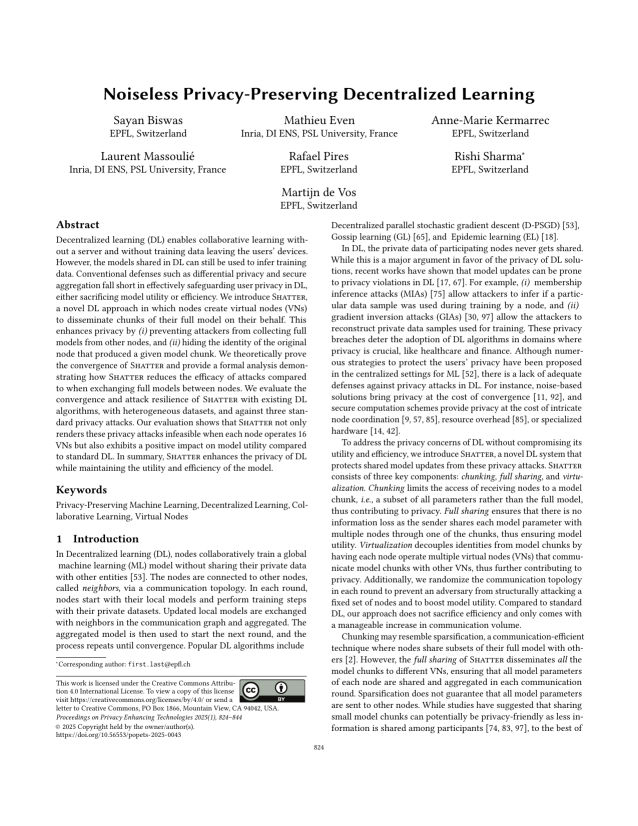Noiseless Privacy-Preserving Decentralized Learning
Authors: Sayan Biswas (EPFL, Switzerland), Mathieu Even (Inria, DI ENS, PSL University, France), Anne-Marie Kermarrec (EPFL, Switzerland), Laurent Massoulié (Inria, DI ENS, PSL University, France), Rafael Pires (EPFL, Switzerland), Rishi Sharma (EPFL, Switzerland), Martijn de Vos (EPFL, Switzerland)
Volume: 2025
Issue: 1
Pages: 824–844
DOI: https://doi.org/10.56553/popets-2025-0043
Artifact: Available, Functional
Abstract: Decentralized learning (DL) enables collaborative learning without a server and without training data leaving the users' devices. However, the models shared in DL can still be used to infer training data. Conventional defenses such as differential privacy and secure aggregation fall short in effectively safeguarding user privacy in DL, either sacrificing model utility or efficiency. We introduce Shatter, a novel DL approach in which nodes create virtual nodes (VNs) to disseminate chunks of their full model on their behalf. This enhances privacy by (i) preventing attackers from collecting full models from other nodes, and (ii) hiding the identity of the original node that produced a given model chunk. We theoretically prove the convergence of Shatter and provide a formal analysis demonstrating how Shatter reduces the efficacy of attacks compared to when exchanging full models between nodes. We evaluate the convergence and attack resilience of Shatter with existing DL algorithms, with heterogeneous datasets, and against three standard privacy attacks. Our evaluation shows that Shatter not only renders these privacy attacks infeasible when each node operates 16 VNs but also exhibits a positive impact on model utility compared to standard DL. In summary, Shatter enhances the privacy of DL while maintaining the utility and efficiency of the model.
Keywords: privacy-preserving machine learning, decentralized learning, collaborative learning, virtual nodes
Copyright in PoPETs articles are held by their authors. This article is published under a Creative Commons Attribution 4.0 license.

